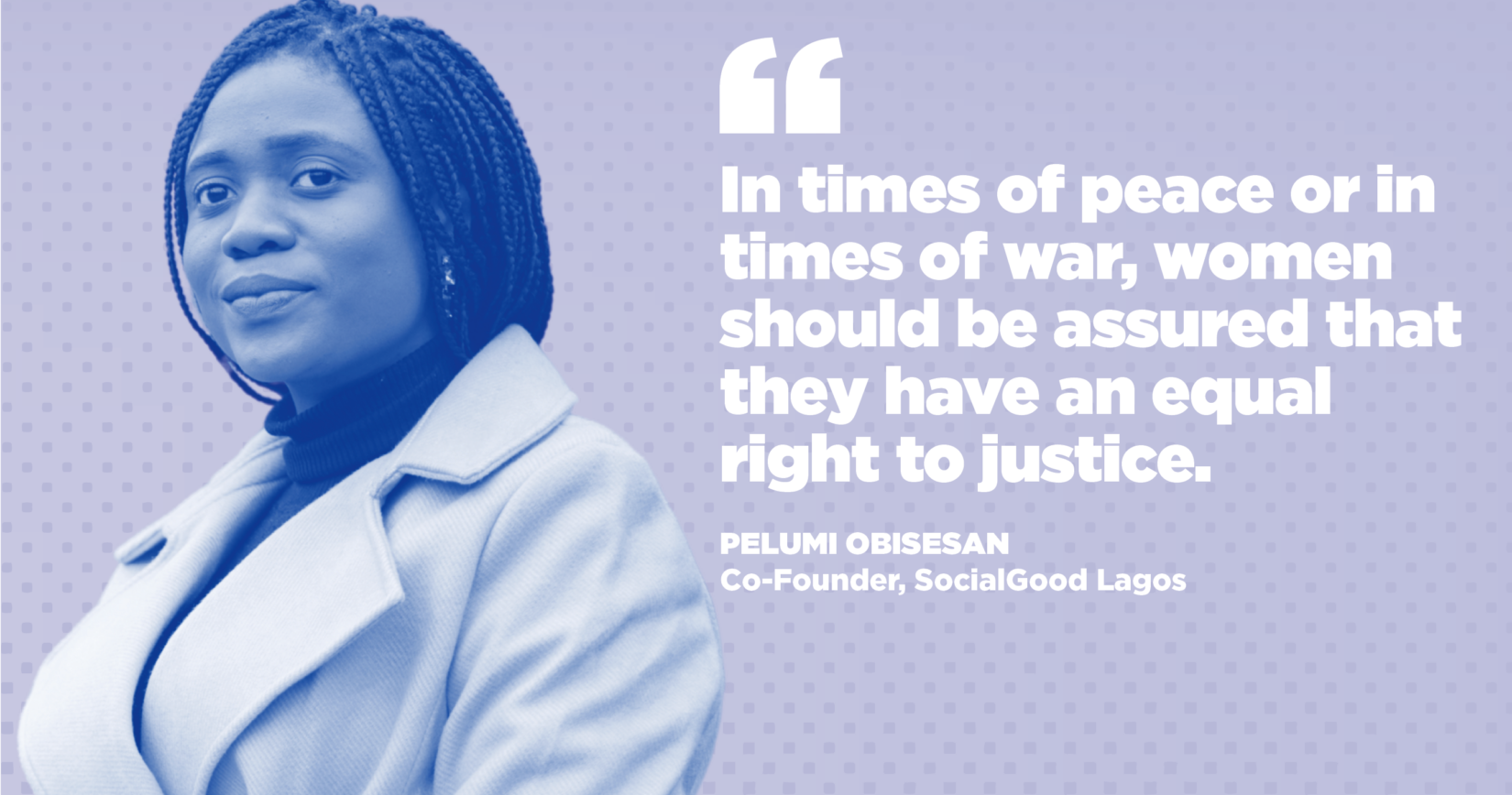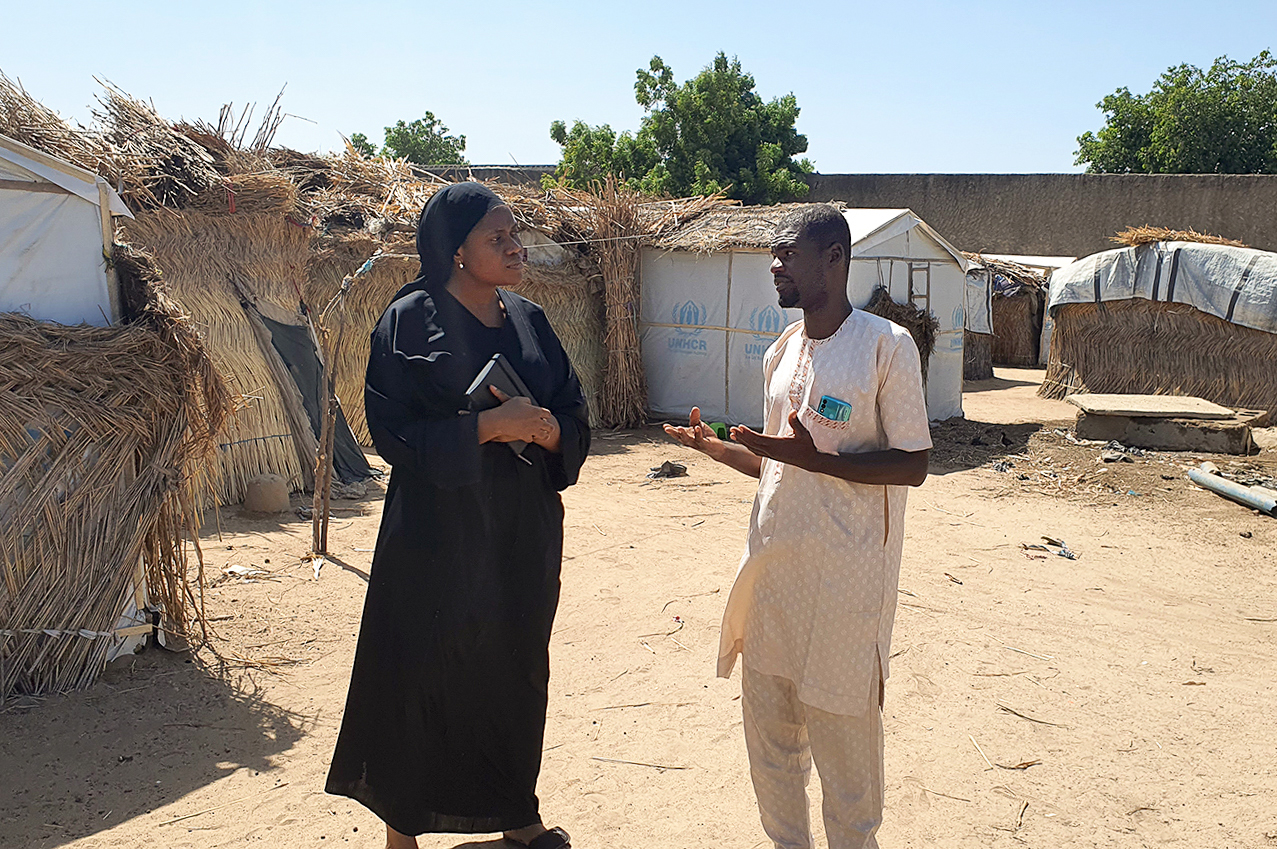If Pelumi’s story inspired you, join the movement for gender equality—and share your commitment to making girls and women #EqualEverywhere.

Growing up in Ibadan, Nigeria, Pelumi Obisesan noticed how society often assigned unwanted or powerless roles to women. This is one of the reasons she volunteered as director of education and advocacy at SocialGood Lagos, a network of change-makers and champions dedicated to harnessing the power of technology, innovation, and partnerships for progress. “I want to ensure that girls are exposed to an education that affirms their self-worth and self-determination,” Pelumi says. Now studying for a Ph.D. in London, she recently interviewed women survivors of Boko Haram to understand their needs and expectations of justice with a view to provide a foundation that takes the gender dimension into account during post-conflict processes to ensure positive outcomes for women.
What inspired you to advocate for the rights of girls and women in your country?
From August 2014 to July 2015, I lived in the northwestern State of Katsina in Nigeria, where I witnessed firsthand how women are treated as people who wield no political or social power. In fact, in very conservative families, even women who went to school are rarely allowed to work outside the home or earn money. I saw how traditional practices and even customary law discriminated against women. Women also rarely reported cases of violence or discriminatory treatment to the court. This lack of agency that women experience is exacerbated during violent conflicts like the Boko Haram–led insurgency and their debilitating aftermath.
Witnessing all of this fueled my interest in contributing to the discourse and advocating for the most vulnerable women. The Boko Haram insurgency started against this backdrop and exploited the culture of misogyny to justify its crimes. Despite the grave injustices that women have suffered as a result, their experiences, needs, and perspectives are often relegated to the background in post-conflict efforts. This is why my doctoral research is focused on advocating that women’s perspectives and experiences be taken into account during the peace-building process.
Last fall you traveled to Borno State in Nigeria to talk with women survivors of Boko Haram. Can you share what you heard?
Since, individually, these survivors had gotten nowhere in their pursuit for justice, some of the women I spoke to had formed a collective to amplify their voices. One of such groups is Jiredole, a group of mothers whose sons went missing during the conflict. Jiredole in Hausa loosely translates to “truth is a must,” a statement that underlies their determination to get answers from the government on the whereabouts of their sons. Otherwise, most of the other women I spoke to were forcefully abducted and taken away from their husbands, families, and communities. They sat with me over a three-week period recounting their experiences with their abductors, the impact it has had on their lives, and, most importantly, how their need for justice has been neglected. They told me, for example, that there is a special rehabilitation program that only their male counterparts have access to. Despite how traumatizing their experiences were, these women were denied access to a program that really could have helped them.

These experiences led me to the realization that in times of war and crisis, women’s experiences and voices are often marginalized. My doctoral research aims to center women’s experiences in post-conflict efforts so that policymakers, aid workers, and the local justice system can take gender into account. Inclusion and representation are important. We also need to have women researchers, consultants, policymakers, and justice officials to ensure an end-to-end gender conscious approach to justice that can deliver wholesome outcomes for women post–Boko Haram.
When it comes to gender equality in Nigeria, what gives you hope?
The progress our advocacy efforts have made possible already. If we keep up our efforts, girls and women can thrive in a gender-equal world. More specifically, in the case of women brutalized by Boko Haram, I am inspired by their stories of survival and courage to speak out. There is a growing realization and acceptance that women’s needs and experiences should be at the forefront of the peace process.
“If we keep up our efforts, girls and women can thrive in a gender-equal world.”
-Pelumi Obisesan
The optimism and dedication I witnessed in Maiduguri, the capital of Borno State, also gives me hope. These NGOs defend women survivors in remote areas by giving them access to legal services that they would have otherwise been denied for many reasons, including a culture of silence and a lack of financial resources. In addition, I am inspired by the work we do at SocialGood Lagos and Teens Going for Gold Network, a nonprofit I founded where we expose girls to education that empowers them.
What does #EqualEverywhere mean to you?
To me, #EqualEverywhere means that whether a woman is an employee of a Fortune 500 company or a survivor of Boko Haram, her experiences matter and her voice is heard. In times of peace or in times of war, women should be assured in the knowledge that they have equal rights, including an equal right to justice.
 BACK TO STORIES
BACK TO STORIES